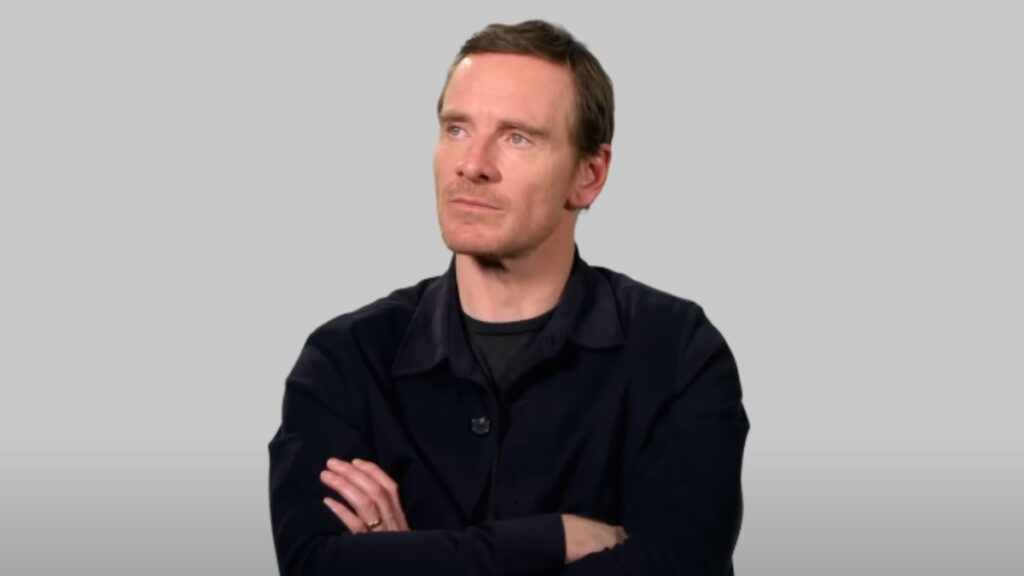
Irish-German actor Michael Fassbender is well-known for his diverse roles in television and films. He became well-known for his parts in films such as “Steve Jobs,” “12 Years a Slave,” and the “X-Men” television series, in which he played Magneto. Because of his brilliance, Fassbender has received several nominations for awards, including the Academy Awards. He is regarded as one of the most renowned performers in modern film because of his captivating acting style and commitment to his job.
Michael Fassbender “band of brothers” mini series
There isn’t much of Michael Fassbender in the critically praised World War II miniseries “Band of Brothers.” He is more well-known for his portrayal as a Marine in the military drama “Generation Kill,” which followed. The 2001 television film “Band of Brothers,” which was co-produced by Steven Spielberg and Tom Hanks, told the story of Easy Company, a division of the 506th Parachute Infantry Regiment, during World War II.
In the years after “Band of Brothers,” Fassbender’s career flourished as he gained recognition for his outstanding acting abilities in a number of motion pictures. He has received praise from critics and several nominations for awards for his depiction of nuanced characters. Notably, he was nominated for an Academy Award for Best Supporting Actor for his portrayal in “12 Years a Slave.” He has also gotten recognition for his roles in “Steve Jobs,” “Shame,” and the “X-Men” trilogy, in which he portrays Magneto.
Although Fassbender had several television appearances in his early career, his move to cinema cemented his place as a top actor. He is a highly sought-after performer in Hollywood because of his ability to depict strong emotions and moral complexity. Fassbender’s performances demonstrate his commitment to his art, as he often fully inhabits the roles he plays.
In conclusion, even though Michael Fassbender did not feature in “Band of Brothers,” his later performances have shown his acting prowess and range. His transition from television to film demonstrates his development in the field and positions him as a major player in modern film.
Michael Fassbender As Magneto in the “X-Men” series

One of the most recognisable depictions of Magneto is Michael Fassbender’s performance in the “X-Men” movie trilogy, which skilfully combined complexity, depth, and passion. Fassbender’s Magneto, who made his debut in “X-Men: First Class” (2011), is a complex character who is influenced by his moral quandaries and tragic history, which distinguishes him from other villains in superhero movies.
Character Development and Origins
Magneto, whose real name was Erik Lensherr, is a mutant who can control metal and magnetic forces. Fassbender’s version starts with a thorough examination of Erik’s past, which is steeped in Holocaust atrocities. His acts throughout the series are compellingly motivated by this tragic past. Complex themes of identity, survival, and retribution are reflected in the character’s transformation from an oppressed person to a strongman determined to defend mutantkind at any costs.
Magneto is portrayed by Fassbender as a tragic hero who feels that his acts are justifiable, capturing his inner turmoil. Despite his sometimes brutal choices, his moral uncertainty gives him depth and relatability. As Erik struggles with the loss of his family and friends, the spectator watches him change and eventually come to believe that mutant dominance is more important than human cooperation.
Important Performances
The first significant role Fassbender had as Magneto in “X-Men: First Class” was well received by critics. The story of the movie depends heavily on his relationship with James McAvoy, who portrays Professor Charles Xavier. Their relationship highlights the ideological differences between the two characters—Charles’s idea of peaceful cooperation contrasted with Erik’s belligerent attitude. The series revolves on this friendship, which is further examined in follow-up films like “X-Men: Days of Future Past” (2014) and “X-Men: Apocalypse” (2016).
Fassbender returns in “Days of Future Past,” a narrative that combines storylines from the past and the future. His depiction highlights Magneto’s development as he battles with Xavier and other mutants against a shared foe while also dealing with the fallout from his previous deeds. The movie emphasises themes of sacrifice and redemption, demonstrating Fassbender’s talent at evoking strong emotions with nuanced facial expressions and impactful speech.
Effect on the Franchise
The “X-Men” series has been greatly influenced by Fassbender’s Magneto, which has helped to give it a darker tone and more intricate plot than previous superhero movies. His performance has received recognition for offering comic book adaptations a new viewpoint and enabling viewers to consider difficult ethical issues pertaining to racism, authority, and humanity.
The character’s development throughout the course of the story mirrors larger social concerns, transforming Magneto from a terrifying figure to one who inspires contemplation of actual battles against prejudice and violence. Magneto has become one of the most captivating characters in contemporary film because of Fassbender’s ability to capture this complexity.
In conclusion
A notable aspect of the “X-Men” series is Michael Fassbender’s portrayal of Magneto. He has made Magneto a figure who appeals to viewers on many levels via his stirring performances, questioning ideas of good and evil and inspiring empathy. By bringing deep concepts that continue to captivate audiences across the globe, Fassbender’s work has not only improved the story but also raised superhero movies.

